BBC’s PRIDE AND PREJUDICE Explained: Just Perfect
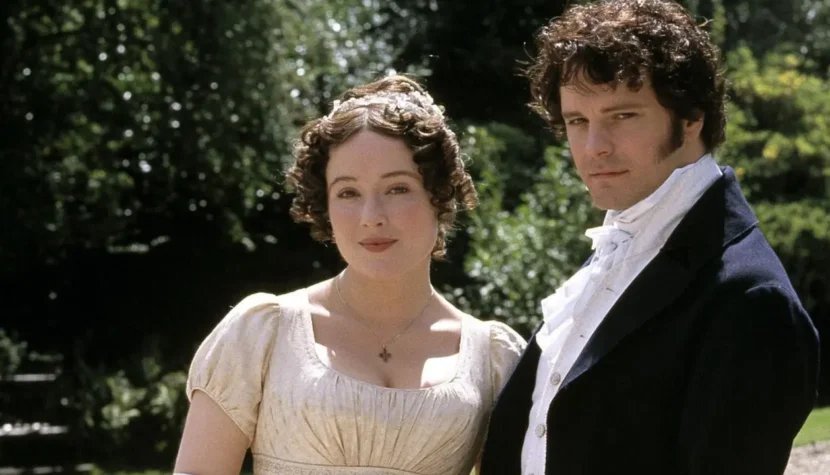
Jane Austen likely had no idea that by creating the portrait of a man so flawed and full of weaknesses, she was simultaneously bringing to life the male ideal to which so many women would sigh longingly.
When we first meet Fitzwilliam Darcy, like Lizzy, we see in him a collection of unpleasant flaws. He is unbearably proud, convinced of his own superiority, and looks down on everyone. Country dances bore him; none of the ladies are interesting enough to tempt him to even one dance. What does it matter that he’s so handsome, or that he’s unbelievably wealthy? Charles Bingley, with his far smaller fortune, is unquestionably more agreeable. To Bingley, everything is delightful: the ball is utterly exhilarating, and the ladies more beautiful than can be found anywhere in the world, particularly the eldest Miss Bennet—he’s left speechless. And what woman would give a second glance to a gentleman who deemed her merely “tolerable” and not attractive enough to dance with? Pride and Prejudice
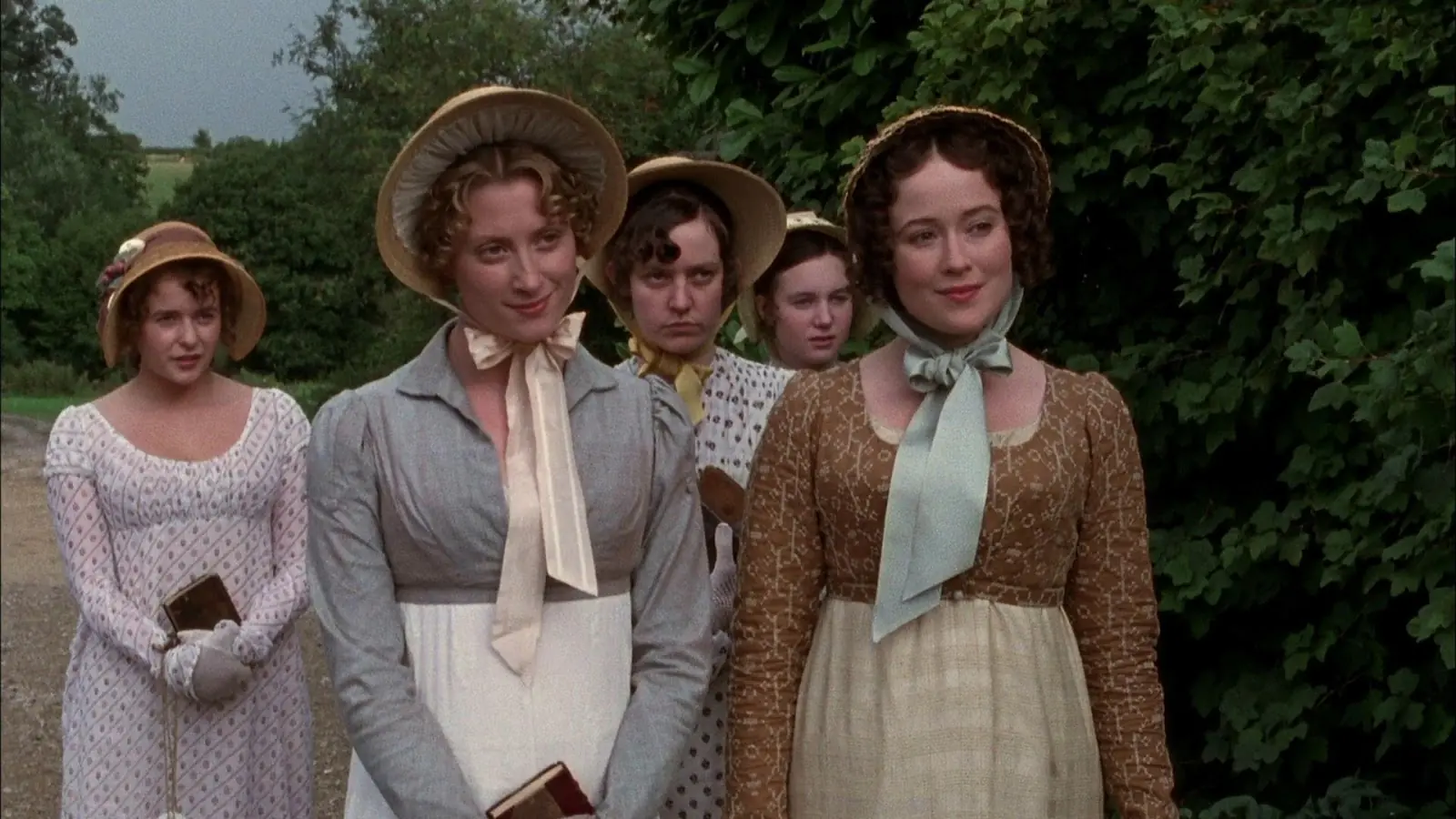
And here lies the secret of why the BBC’s Pride and Prejudice miniseries is the perfect adaptation, Jennifer Ehle the perfect Liz Bennet, and above all—Colin Firth the perfect Darcy.
Colin Firth as Darcy doesn’t merely look—he gazes. He doesn’t walk—he strides. He doesn’t engage in trivial small talk but instead conducts meaningful conversations. His measured glances oscillate between reproachful disdain and ironic astonishment. Undeniably, he has class; despite his evident prejudices, he isn’t repulsive. From the very beginning, Firth imbues his character with a deeply human quality, masterfully conveying the impression that there is “something” in Darcy.
We witness a performance, a façade polished over the years. Yet we sense that behind this cold, irritatingly sarcastic exterior lies a remarkable personality, valuable insights, a gift for keen observation, and even a sense of humor. Yes, Darcy, when he chooses, can be amusing. What’s more, thanks to Lizzy, he will eventually discover that even jokes made at his own expense can bring him pleasure.

Under each other’s influence, both Liz and Darcy undergo change. Darcy’s life experiences have fostered a deep-seated caution in him. He distrusts people and tends to assume they have ulterior motives. He strives to shield those he considers friends from such dangers. When Liz first encounters Darcy’s estate staff and later his sister, she is startled by how vastly their opinion of him differs from the one she herself has formed. They speak of him in glowing terms, and what’s more, their praise seems entirely sincere. Is it loyalty and familial affection that make these people see Darcy through rose-colored glasses, or did Liz rush to judgment, allowing appearances and her own prejudices to cloud her perspective?
Liz sees herself as observant, possessing wit and humor—qualities she believes usually enable her to judge others accurately. However, her catastrophic misjudgment regarding Wickham opens her eyes to her own shortcomings. This realization partly enables her to reassess Darcy, recognizing that she has judged him for flaws she herself is not free from. Over time, Liz draws further conclusions and learns an important lesson for the future: those who most ostentatiously display their nobility and virtues are often the least trustworthy. Wickham’s inconsistencies become clearer to her as time passes. Initially, however, enchanted by his superficial charm, she takes his every word at face value.
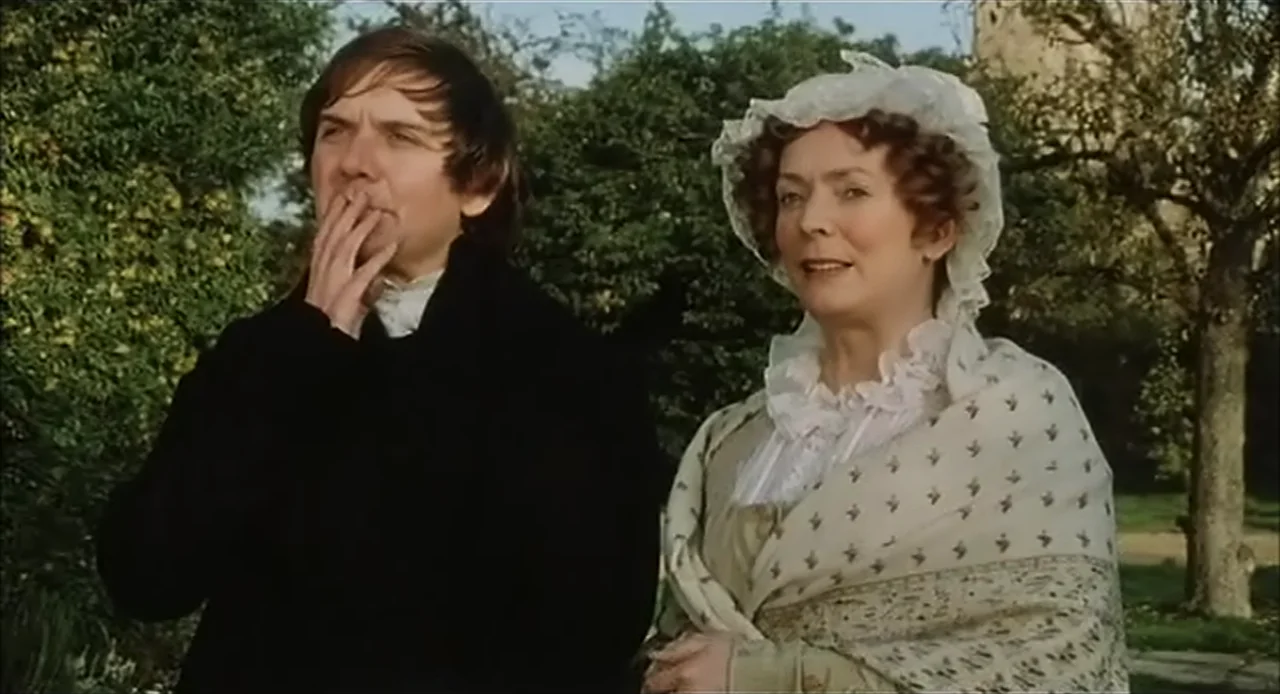
Meanwhile, it is Darcy who demonstrates remarkable nobility and the conduct of a true gentleman. His words may sometimes miss the mark, his first proposal may have been offensive, and his misjudgment of Jane’s feelings for Bingley may seem almost unforgivable. Yet the point is that his actions speak far louder than his words. It’s hard to imagine a greater proof of his love for Liz than his swift resolution of the scandal caused by her reckless sister. Any dealings with Wickham must have been unbearable for him, and yet he chose to endure it, made tangible promises, fulfilled them, and in doing so, risked his own reputation—all to ease the worries of the woman he loved.
Liz—let’s not forget she is still very young, barely past twenty and thus naturally lacking in life experience—takes this lesson to heart and visibly matures because of it, especially in her approach to love. While she has never struggled to voice her opinions—being independent, intelligent, and resolute, free of the soft gentleness that defines her sister Jane—she truly comes into her own during her confrontation with Darcy’s indignant aunt. In this moment, she stands as a woman aware of her convictions, confident in her feelings, and determined to defend her beliefs.
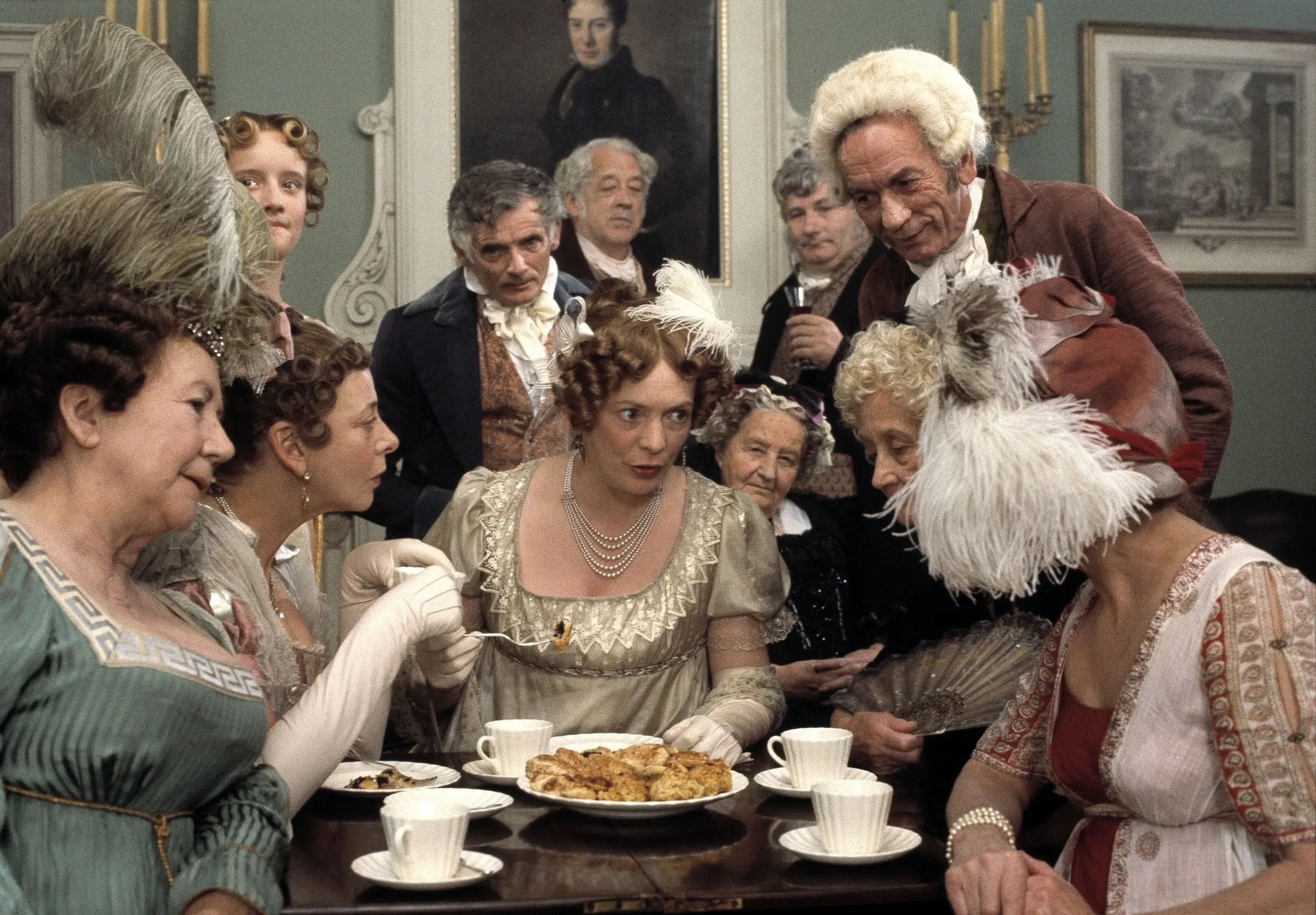
Under each other’s influence, both Liz and Darcy transform. She evolves from a young girl into a woman who has endured her first bitter life lesson. His mask of severity and cynicism falls away, replaced by a newfound belief that life might indeed have reserved a little happiness for him. Liz’s cheerfulness, her lightness, wit, and originality refresh Darcy in ways he never anticipated. He is astonished by this effect, struggling to understand why he seeks her company, why their spirited debates bring him so much pleasure, and why her unremarkable family connections suddenly cease to matter as much. While Liz misjudges the essence of Darcy’s character in many respects, it is her detachment, lack of sycophantic admiration, and utter absence of self-interest—combined with her integrity, loyalty, and irrepressible joy in life—that captivate him.
Darcy begins to breathe more deeply. He begins, quite simply, to live. His features—so brilliantly conveyed by Colin Firth—lose their rigidity, severity, and excessive gravity, softening and becoming gentler. In his gaze, we no longer see cold irony but tenderness. He begins to show the protectiveness and care so familiar to his sister, along with the generosity, discretion, and kindness remembered by his servants. These qualities, always present within him, had been hidden under layers of disappointment and a protective shell of cynicism. The desperate fawning of Bingley’s sister could never penetrate this armor. It required sincerity, honesty, and perhaps, who knows, a touch of destiny.
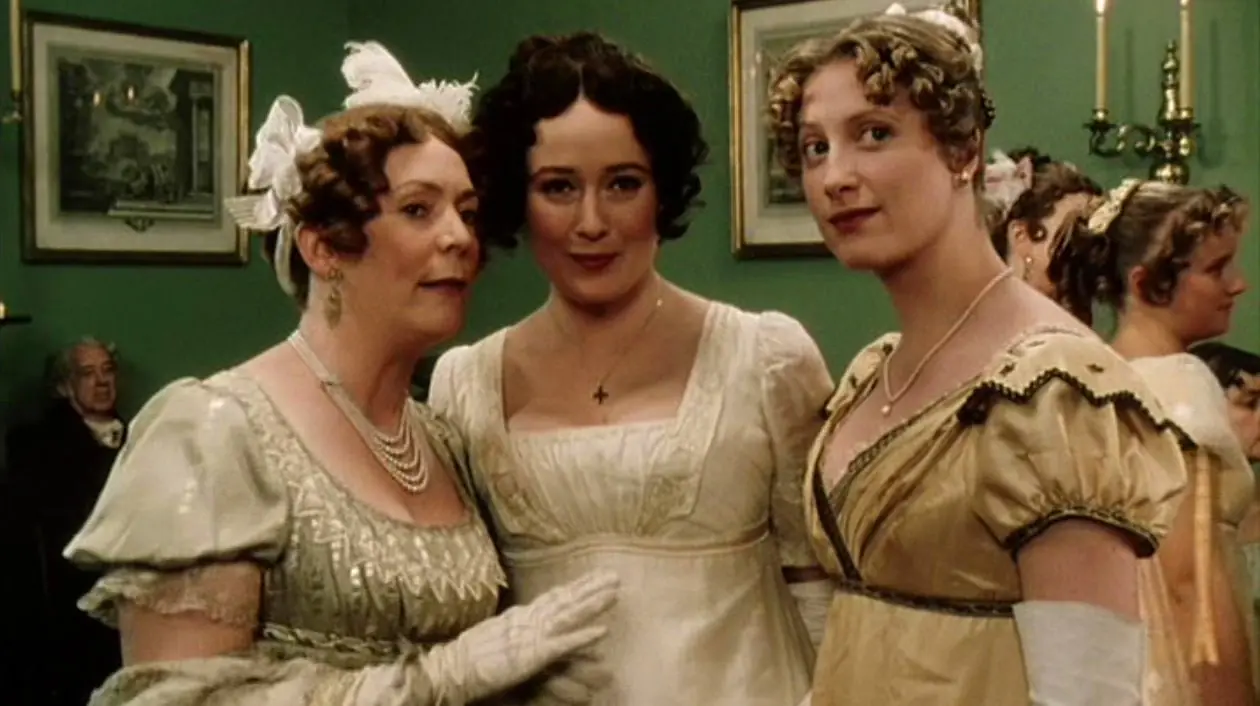
In the excellently cast Pride and Prejudice, Susannah Harker as Jane Bennet comes across as relatively the weakest link, though it’s worth noting that Jane, even in Austen’s original, isn’t a particularly dynamic character—what can you make of someone who is essentially composed entirely of goodness? That said, Harker misses the opportunity to highlight Jane’s most intriguing trait: her tendency to conceal her emotions. Jane does this so effectively that Darcy has some basis for suspecting that her feelings for Bingley might not be entirely genuine. This subtlety is less apparent in the series.
A true gem, however, is Julia Sawalha’s portrayal of the loud, irresponsible, borderline vulgar, and delightfully silly Lydia. The often-overlooked Mary (played by Lucy Briers) is also given more depth and a touch of sympathy by the creators. Mary’s life isn’t easy—she doesn’t match her sisters in looks or talents, her parents treat her dismissively, and her intellectual pursuits fall short of her aspirations. In this adaptation, Mary is imbued with a sense of wry sarcasm that grants her individuality. Austen herself was rather harsh toward Mary’s intellectual ambitions, but here, the character benefits from a more nuanced portrayal. Still, Mary remains a victim of unremarkable mediocrity—a fate she cannot escape. To emphasize this, Briers is styled with facial blemishes and greasy hair combed to accentuate her protruding ears.
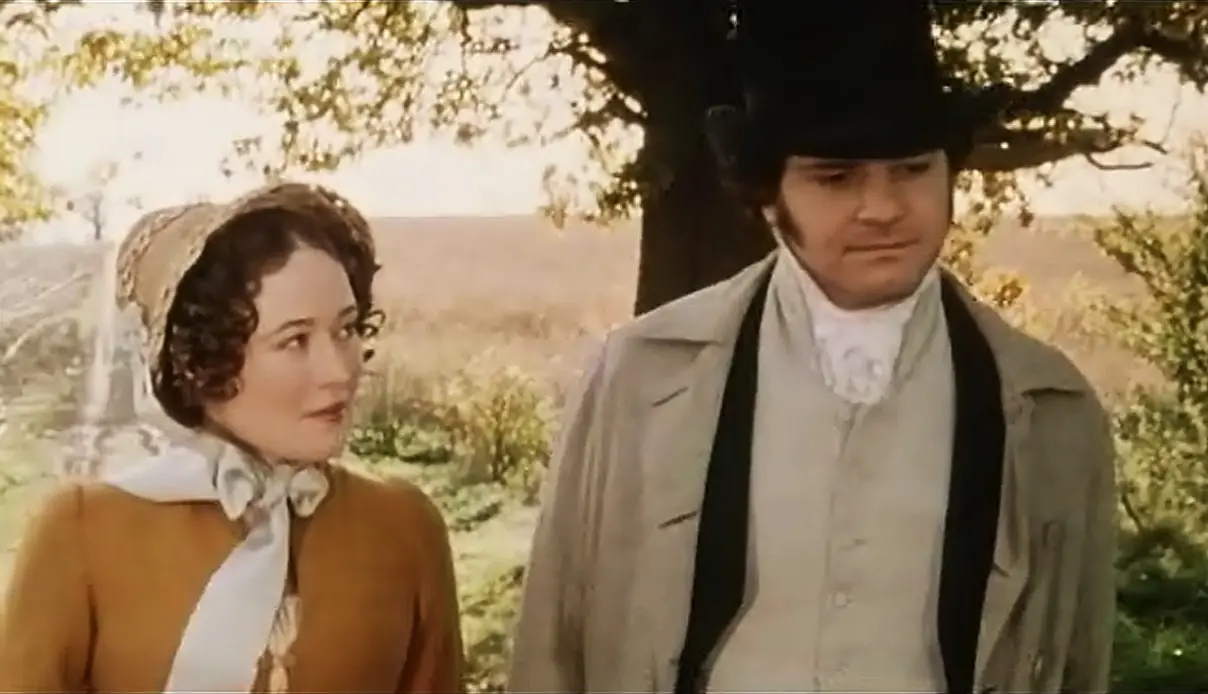
This attention to stylistic details is evident across the cast. Harker’s hair is lightened to contrast with Lizzy’s dark locks and styled in a Grecian updo to underscore her status as the local beauty. Colin Firth dyed his hair, eyebrows, and eyelashes an intense black, while Jennifer Ehle as Elizabeth wears flowing, earthy-colored dresses that enhance her naturalness and authenticity. Lizzy’s affinity for nature and her sensitivity to the beauty of the outdoors reflect her connection to her emotions and inner self. Significant emotional moments between Lizzy and Darcy almost always occur in the open air, emphasizing the transformative power of the natural world on their relationship and personal growth.
The charm of Pride and Prejudice lies not only in its romance but also in its humor, both verbal and situational. Endless delight comes from Mr. Bennet’s sharp and ironic remarks, Mrs. Bennet’s hysterical exaggerations, and Reverend Collins’s pompous adoration of Lady Catherine de Bourgh’s unparalleled benevolence and the soirées at Rosings. Yet, one scene—absent from Austen’s original—sparked a reaction entirely different from what screenwriter Andrew Davies had intended.
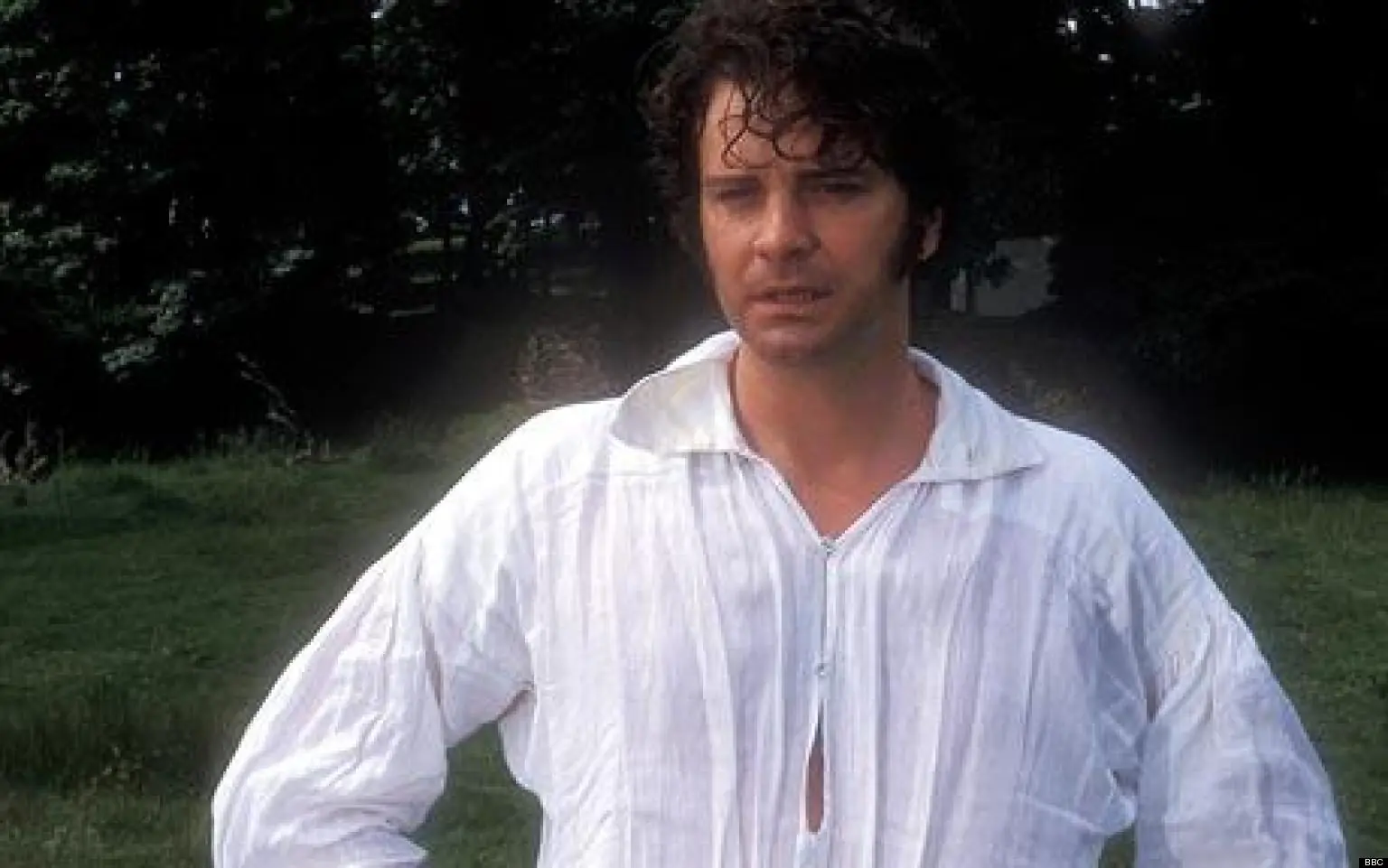
The scene in question is the now-iconic moment where a casually clad, water-drenched Darcy encounters Elizabeth after his dip in the lake. Davies envisioned it as a humorous depiction of extreme awkwardness, with Darcy desperately striving to maintain composure and dignity under less-than-ideal circumstances. However, this lakeside meeting, hailed by The Guardian as one of the most memorable moments in British television history, is widely interpreted as a manifestation of the smoldering sexual tension between the characters. It suggests that Darcy’s physical presence has a tangible effect on Lizzy’s yet-to-awaken sensual awareness—and, incidentally, on the female audience as well.
Of the countless adaptations of Jane Austen’s work, this one, while staying true to the story and—more importantly—the spirit of the book, stands out as the freshest, most charming, and timeless. The characters feel like real, flesh-and-blood people, driven by genuine passions and remaining relatable despite their peculiar clothing, today’s incomprehensible social conventions, and the intricate steps and bows they call dancing. The charm of Pride and Prejudice remains undiminished by time, and it’s safe to assume that yet another… and another… and yet another generation of women will continue to quietly sigh over Mr. Darcy, hoping to encounter his counterpart on their own life’s journey.

